Union chief Shawn Fain said he’s changing things up. He noted the Detroit Three automakers were “gaming” the times he was announcing the next round of stand-up strikes, and submitting new offers just before he plan to reveal them. So, he’s going to Plan B: surprise announcements.
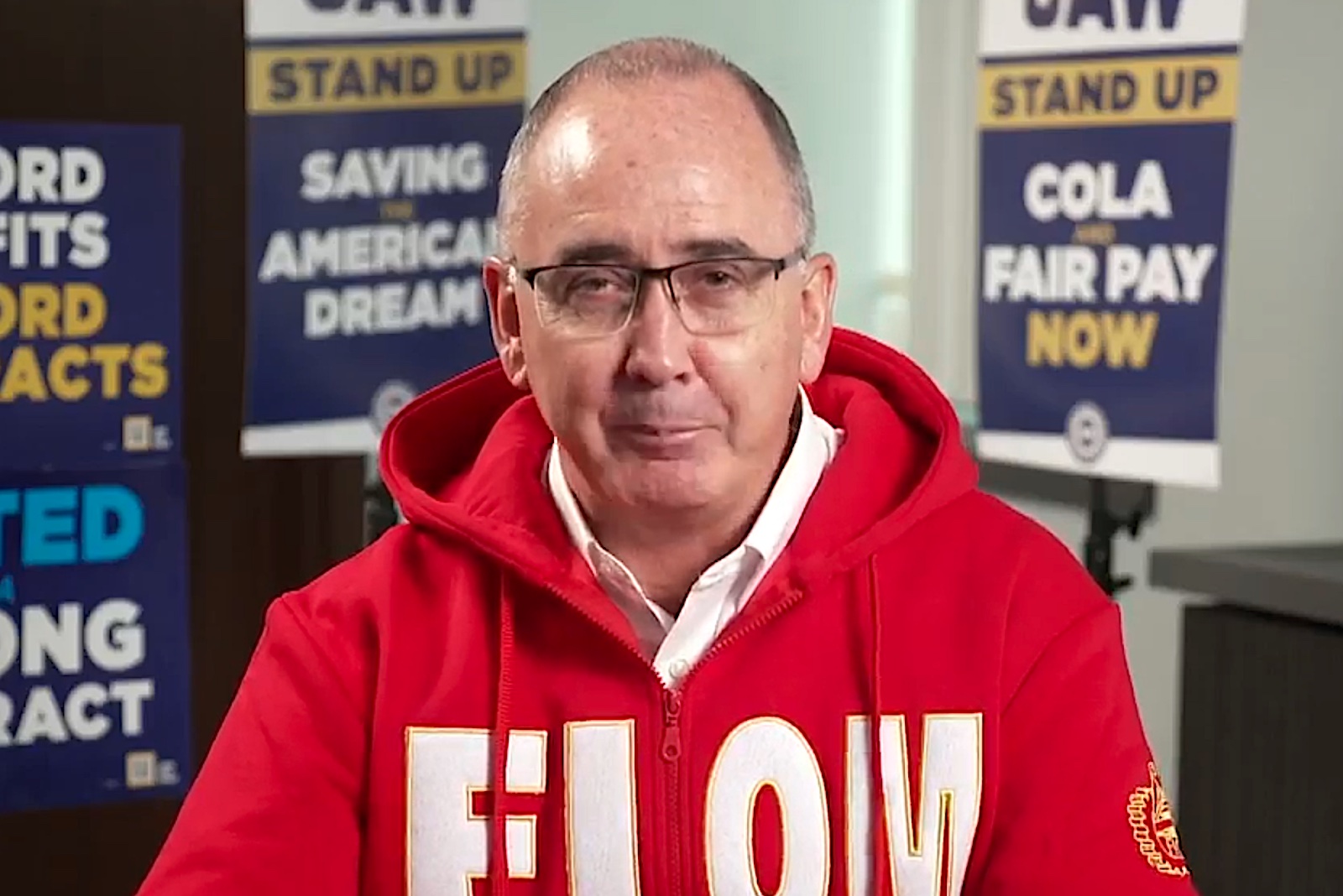
UAW President Shawn Fain said the automakers were “gaming” the conduct of the strike by withholding offers until just before his Friday appearances.
The United Auto Workers is changing tactics in its battle for new labor contracts with Detroit’s automakers — the union says it will no longer set deadlines before calling strikes at plants belonging to General Motors, Ford and Stellantis.
UAW President Shawn Fain said while livestreaming on Facebook Live the automakers were “gaming” the conduct of the strike by withholding offers until just before his Friday appearances. So, the UAW is changing its approach and will no longer set any kind of deadline a walkout begins at a plant belonging to Detroit’s manufacturers. Instead, it will use surprise strike to keep the automaker off balance, the UAW chief said.
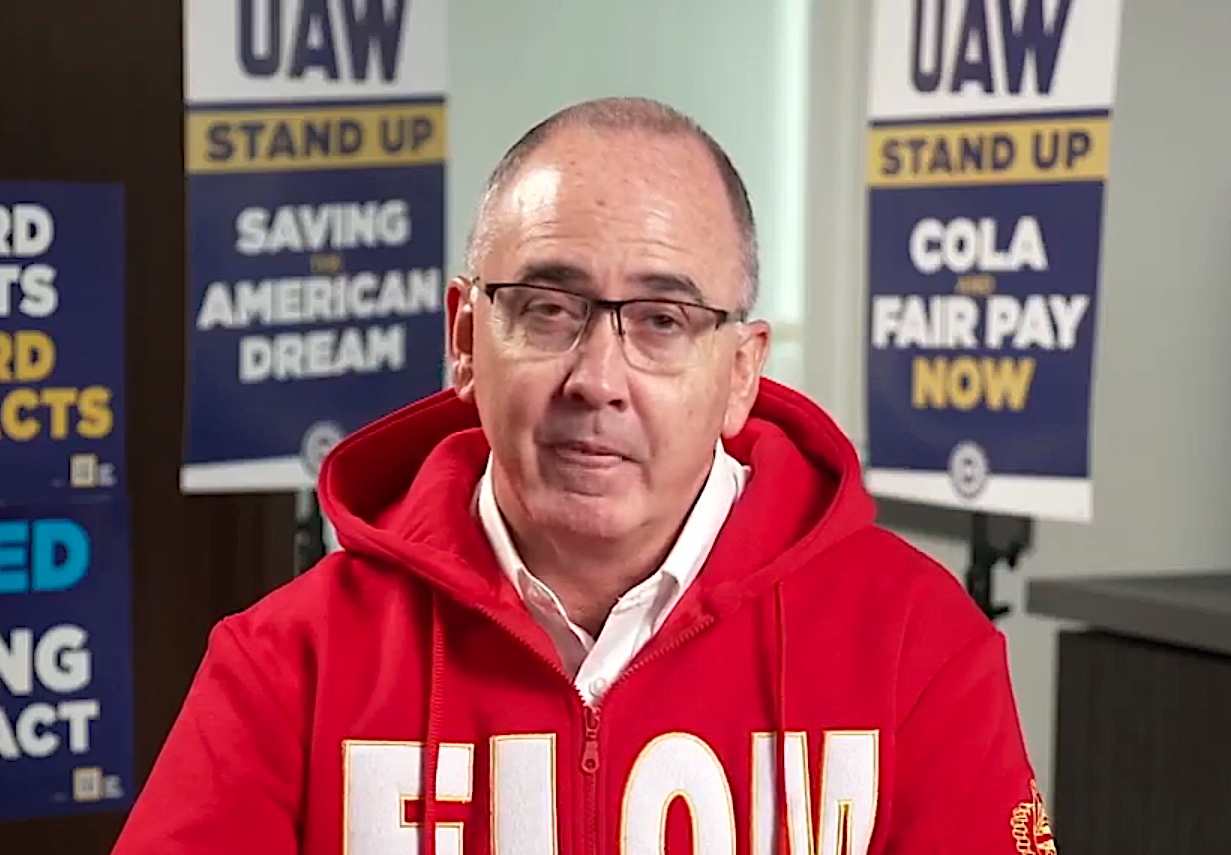
The UAW is changing its approach and will no longer set any kind of deadline for when a walkout begins at a plant belonging to Detroit’s manufacturers.
The union tested the tactic this week by calling a strike at Ford Motor Co.’s Kentucky Truck Plant. If the plant was a “standalone” company, it would belong in the Fortune 500, Fain noted. With 8,700 members, UAW Local 862 in Louisville is the largest UAW Local involved in the negotiations and the strike.
The walkout at Kentucky Truck stung Ford, which has not been embroiled in a major labor dispute with the UAW since 1976. It halted production of critical — and highly profitable — vehicles such as F -Series Super Duty, Ford Expedition and Lincoln Navigator.
Kumar Galhotra, president of Ford Blue, said the company’s negotiators have told the UAW’s bargaining team they have made every effort to accommodate the union’s demands — but can go no further. “We’ve been very clear that we are at the limit. We stretched to get to this point,” Galhotra noted during a background briefing Thursday.
KTP strike hits Ford hard
The expanding UAW strike at KTP will have a substantial impact on Ford’s manufacturing operations, according to Ford executives. “One hundred thousand families will feel the aftershocks,” according to Galhotra.
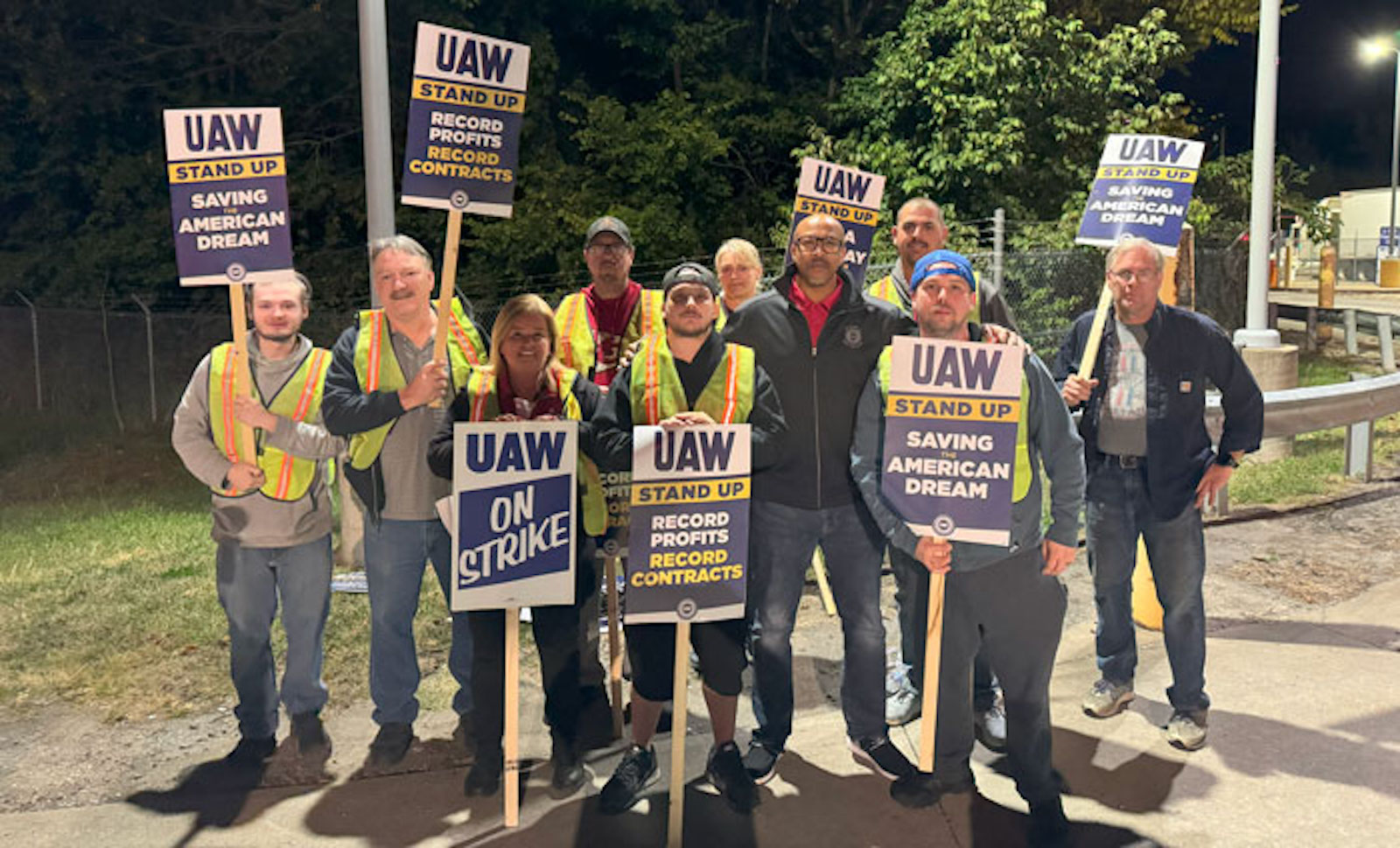
The walkout at Kentucky Truck halted production of critical — and highly profitable — vehicles such as F -Series Super Duty, Ford Expedition and Lincoln Navigator.
More than 600 suppliers feed components into the big complex, which also stamps out parts used by the Louisville Assembly Plant and the Ford’s Ohio Assembly Plant in Avon Lake, Ohio. In all, 13 different Ford plants are connected to the KTP, including one in Canada and another in Mexico.
“The fragile supply chain will be nudged further toward collapse,” says Ford Chief Supply Chain Officer Liz Door, who added even when the strike eventually ends suppliers are saying it will take as long as four weeks to resume operations.
More than 30% of the smaller suppliers have already laid off employees. Many of the smaller suppliers on which Ford depends are saying they will have hire and train new employees, Door adds.
Ford’s negotiators say they have offered pay increases of more than 20% to permanent workers, raises of 26% for temporary workers, the return of cost-of-living adjustments, a ratification bonus, increased 401(k) contributions, additional paid time off and “no job loss due to EV battery plants,” among other things.
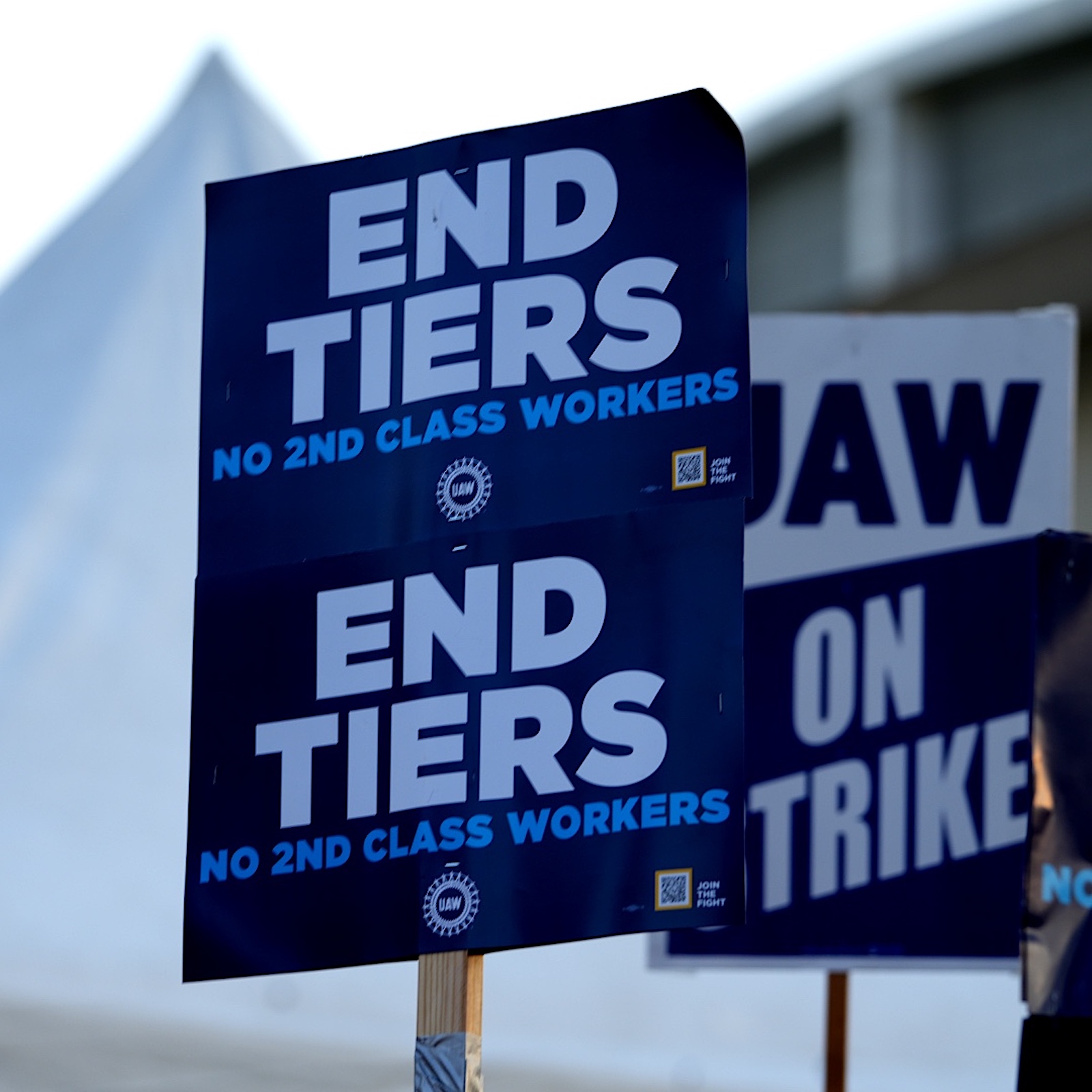
With 8,700 members, UAW Local 862 in Louisville is the largest UAW Local involved in the negotiations and the strike.
Bottom line impact
The F-Series Super Duty trucks built at KTP account for 10% of sales by Ford’s 3,000 dealerships. The Lincoln Navigator built at KTP also accounts for 20% of sales for the company’s Lincoln dealerships.
Fain, who warned GM and Stellantis could face strikes at key plants, was unmoved by Ford’s arguments. Ford CEO Jim Farley should find “the big checkbook” he used to repurchase the company’s shares.
During his Facebook Live appearance, Fain also wore a neatly tailored hoodie given to him by the Italian Auto Workers union.
Fain, whose fashion choices have become a topic of discussion during the strike, said he was wearing the Italian hoodies to underscore the international support the UAW has gotten for its strike. Fain added the UAW’s goals in the negotiations remains the same, which is to reclaim the economic territory union members have lost since the Great Recessions.
Ford Motor Co. has made $77 billion in the past decade, added Fain in dismissing the public pleas of the company’s executive staff the company cannot afford the economic package demanded by the UAW.

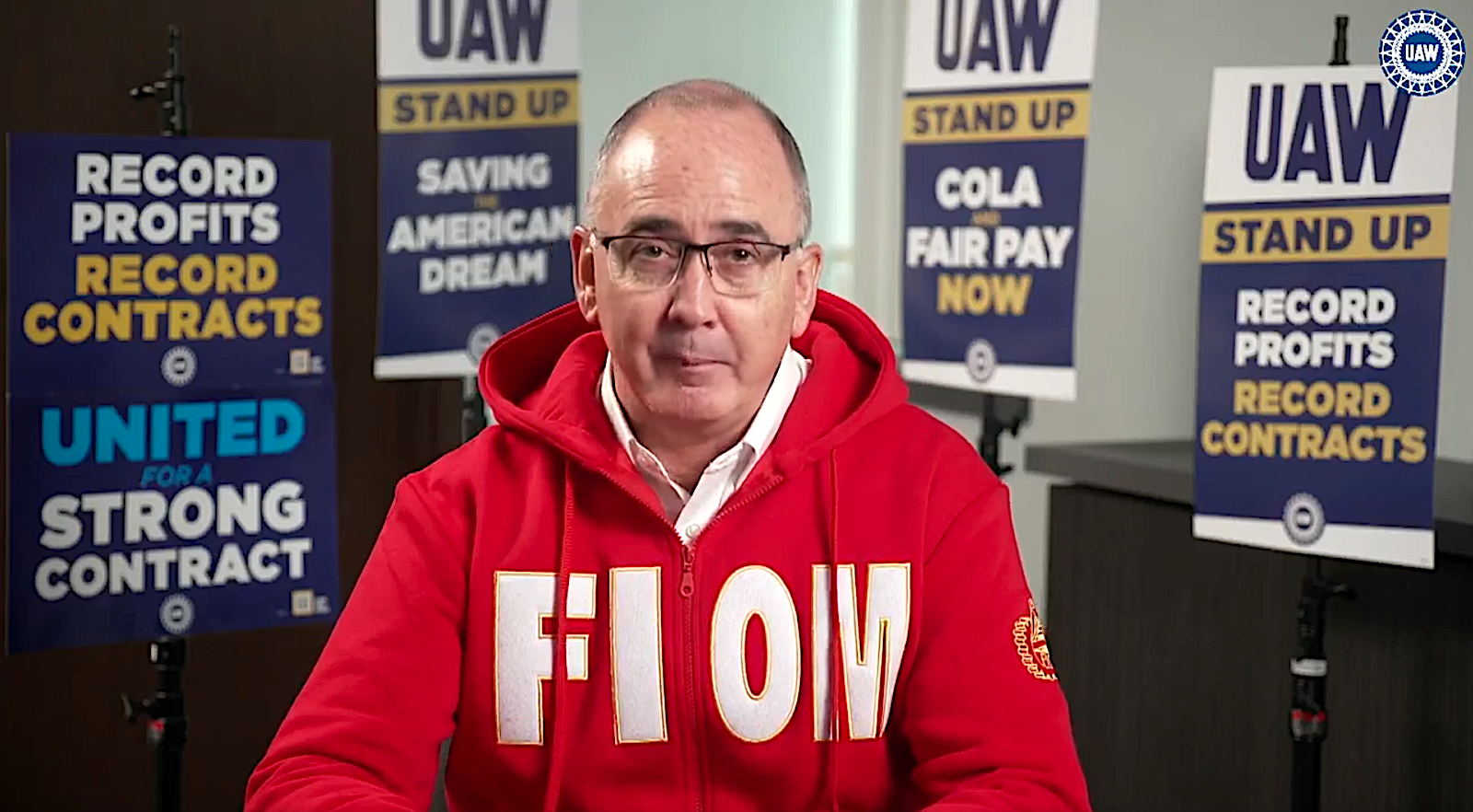
0 Comments